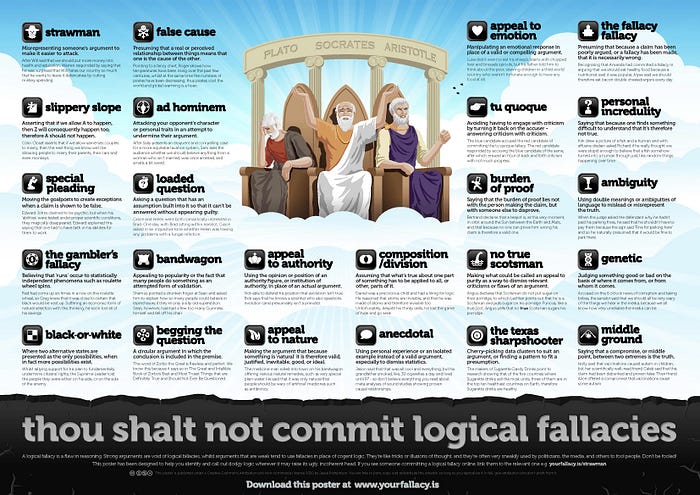If you suspect you’re in a hole, stop digging.

As human beings, we enjoy a unique place in the modern animal kingdom. We are predators in the circle of life, certainly; perhaps the most ruthless and effective the world has ever known.
Improbably, though sharks swam the oceans for 400 million years before Homo Erectus first strode terra firma on two legs, it was us, we humans, who grabbed the evolutionary brass ring.
Somehow — no one is quite sure how or why — we humans developed our big claim to fame, our best defense, even better offense, and towering strength — which incidentally is also our greatest weakness.
Behold: The human brain.
Our quantum thinking machines are miracles of cosmic engineering. With this advanced equipment, we’ve been able to think our way out of one crisis after another.
And usually into the next.
With our vastly superior intelligence, human beings conquered the world. We are a class of predator way beyond apex; we prey on everything, and nothing preys on us.
Except ourselves.
Unfortunately for our fellows, we are extremely effective predators. Unfortunately for us, our fellows are equally adept.
So it isn’t exactly true to say that nothing preys on human beings. Only open a history book — any history book — to a random page — any page — and learn the terrible truth: We prey on each other — voraciously.
The worst part about man’s inhumanity to man — to the despair of sages and philosophers throughout the ages — is how much suffering we inflict on each other and ourselves as a result of misunderstandings, miscommunications, illogical actions, incorrect assumptions, and pure unadulterated stupidity.
No animal counts human beings among its prey. Polar bears and mountain lions may strike at the occasional solo ice fisherman or hiker respectively; hippopotami are notoriously territorial and kill more people in Africa every year than any other wild animal, but Homo Sapiens — the Thinking Man — is the undisputed King of the Animal Kingdom.
But a deadly predator hunts us just the same.
Ours are the slings are arrows of outrageous fortune: The human capacity for creativity, learning, and invention appears to be unlimited; the human capacity for cruelty, delusion, and destruction seems equally inexhaustible.
Human beings are unique and therefore uniquely vulnerable to a different kind of predator: The logical fallacy.
Even the most intelligent person on the planet can fall victim to a logical fallacy. In fact, superior intelligence can be disadvantageous when confronting logical fallacies. The sharper the mind, the better the justifications, excuses, and rationalities will be for reactions that are prompted by emotion rather than good sense.
To avoid becoming a victim of logical fallacies and your own too-smart-for-its-own-good brain, it's a good idea to familiarize yourself with common logical fallacies and how to catch yourself using them.

One of the most common flaws in logic frequently lands human beings in dire straits from money pits to land wars.
The Sunk Cost Fallacy is as dangerous as a Saber-Toothed Tiger and much harder to avoid.
After we have invested heavily in something — be it a cause, course of action, or project — we get caught up worrying about the sunk cost, which is gone in any case.
Not wanting to walk away from an “investment” that has become a sunk cost, we keep investing more and more, “throwing good money after bad,” thinking eventually, it must pay off — somehow.
Consider Elon Musk and his current tilt against the windmills of Twitter. It’s a good thing Musk believes in Twitter for the good of mankind because rocking the boat of profitability as much as Musk is at Twitter may end up capsizing the entire boat.
Once Musk was invested in acquiring Twitter, did he pursue the project long after its many flaws became apparent? He tried to walk away from the deal once — very hard. Now, he seems determined to right the ship or go down with it.
Will Elon Musk continue to try and fix Twitter long after the platform has clearly run its course?
Is the Sunk Cost Fallacy the reason Sam Bankman-Fried was able to bamboozle everyone from media watchdogs to Democratic Party mega-donors?
Sam Bankman-Fried was and is, by all accounts, very good at talking the talk of a wealthy progressive do-gooder trying to make the world a safer place for Democracy.
By saying all the right things — and appearing too good to be true but for a tiny, insignificant personality quirk involving sloppiness of dress — Sam Bankman-Fried wrangled the keys to the crypto kingdom to the tune of $2 billion in investor assets still missing.
At the very least, seeing the glimmering mirage of something way too good to be true calls for caution — be it a magical machine that promises to diagnose disease from a drop of blood, or a crypto-mancing Democratic Party mega-donor who should have set off alarm bells on Wall Street months ago.
When we want to believe — badly — we will work hard to preserve that belief as long as possible — especially if we are heavily invested.
To fight against the dire menace of Sunk Cost, a few rules might help:
- Actions speak louder than words.
- If something seems too good to be true, it probably is.
- What goes up, must go down.
- And if you even start to suspect you might be in a hole, stop digging.
(contributing writer, Brooke Bell)